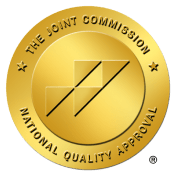Librium Addiction: Side Effects, Detox, Withdrawal, and Treatment
- Posted on November 11, 2024
Table of Contents

What Is LSD?
D-lysergic acid diethylamide, also known as LSD, is a hallucinogen drug that severely alters the perception, thoughts, and feelings of those who take it. Although there are a variety of hallucinogenic drugs out there, LSD is one of the most powerful, producing “trips” or hallucinations that can last up to 12 hours.
LSD is made from lysergic acid, which is a substance found in a fungus that grows on grains. It’s usually a clear or white, odorless substance, but it’s sometimes also made in liquid form. It is typically sold on the street in small tablets, capsules, or gelatin squares.
To use LSD, most individuals swallow the tablets or capsules, drink the liquid form, or absorb it through the lining of the mouth using drug-soaked paper pieces. Regardless of what form it comes in, LSD interferes with serotonin in the brain, which regulates a number of things throughout the body, including:
- Sensory perception
- Muscle control
- Mood
- Hunger
- Body temperature
The immediate side effects of hallucinogenic drugs like LSD can range from moderate to severe and long-term use carries many different physical and psychological risks.
Slang for LSD
The following terms are street names or slang for LSD:
- Acid
- Dots
- Yellow Sunshine
- Blotter
- Animal
- 100s
- 25s
- Big D
How Common Is LSD Abuse?
According to the 2016 National Survey on Drug Use and Health, 4.9 million people (or 1.8 percent of the population) abused hallucinogen drugs such as LSD over the past year. LSD is a widely abused drug, but that doesn’t lessen the danger of it or its unpredictable effects.
Although research shows that some hallucinogenic drugs are addictive, according to the National Institute on Drug Abuse, LSD is not considered addictive. However, it does produce a tolerance, which drives users to take larger or more frequent doses to achieve the desired effect.
Overcoming LSD addiction is possible.
Medical detox and rehab can provide tools and resources to get sober.
Start your recovery today by calling (888) 343-1967.
What Are the Side Effects of LSD?
Immediate short-term effects of LSD typically begin within 20 to 90 minutes of ingestion and can last up to 12 hours. LSD side effects include:
- Hallucinations
- Intensified feelings and sensory experiences
- Increased body temperature
- Dizziness
- Sleepiness
- Dry mouth
- Sweating
- Loss of appetite
- Tremors
- Increased blood pressure
- Numbness
- Rapid mood swings
- Impulsive behavior
- Increased heart rate
Scientists know very little about the long-term effects of LSD abuse, although a few rare ones may include:
- Psychosis
- Flashbacks
- Stroke
Microdosing LSD: Is It Safe?
Microdosing LSD refers to the practice of taking very small doses of LSD to improve mood, produce stimulating effects, and increase creativity without producing full hallucinations that can negatively interfere with daily life.
Although user reports and some studies indicate that microdosing LSD under the supervision of a medical professional may be an effective way to treat mental health issues like depression, anxiety, and PTSD, there are still risks involved. Taking any drug consistently or frequently (including LSD) may not be safe for all individuals. Certain people may have an increased risk of developing a psychological drug addiction that may be enhanced by microdosing LSD.
What Are Signs and Symptoms of LSD Addiction?
Since LSD is not considered an addictive drug, it may be difficult to tell when a person is abusing it and there may not be any physical signs. One major sign of a problem is when a person develops a tolerance to LSD. This typically happens very quickly with repeated use, but a tolerance to LSD can also be very dangerous, as the drug’s effects are highly unpredictable.
Additionally, LSD tolerance is short-lived. If a user stops taking LSD for 48 to 72 hours, he or she will lose any tolerance they previously had. Unlike many other illegal substances, suddenly stopping all LSD use typically does not result in any withdrawal symptoms.
Although LSD is not physically addictive, chronic abusers may develop a strong psychological addiction to the drug. Signs of psychological dependence may include:
- Anxiety
- Depression
- Panic attacks
- Cognitive problems (memory and attention)
- Confusion
- Suicidal thoughts
- Flashbacks
LSD Withdrawal Symptoms and Detox
Medically assisted detox treatment for LSD is not typically necessary, as there are generally no physical withdrawal symptoms.
